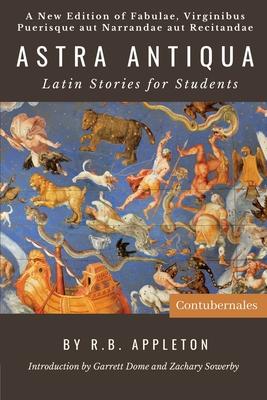The ancient world is to modern students a distant planet, in the deep obscurity of space. They struggle to observe the complexity of her features, nor can the hum of her poets easily penetrate the intervening remoteness. We must remember, however, that as it whirls along its accustomed circuit our Earth displays to us the same celestial vault whose nocturnal decoration once inspired the ancient bardic spirit. Astra Antīqua contains more than 70 Latin stories which our night sky illustrates: Hercules, Perseus, Andromeda, Phaethon (Auriga), the Argo (Navis), the Peliades, Icarius (Bootes), and others. These versions of the stories were originally written by R. B. Appleton, and published in 1914 under the title Fabulae Virginibus Puerisque aut Narrandae aut Recitandae.

Astra Antiqua: Latin Stories for Students
The ancient world is to modern students a distant planet, in the deep obscurity of space. They struggle to observe the complexity of her features, nor can the hum of her poets easily penetrate the intervening remoteness. We must remember, however, that as it whirls along its accustomed circuit our Earth displays to us the same celestial vault whose nocturnal decoration once inspired the ancient bardic spirit. Astra Antīqua contains more than 70 Latin stories which our night sky illustrates: Hercules, Perseus, Andromeda, Phaethon (Auriga), the Argo (Navis), the Peliades, Icarius (Bootes), and others. These versions of the stories were originally written by R. B. Appleton, and published in 1914 under the title Fabulae Virginibus Puerisque aut Narrandae aut Recitandae.